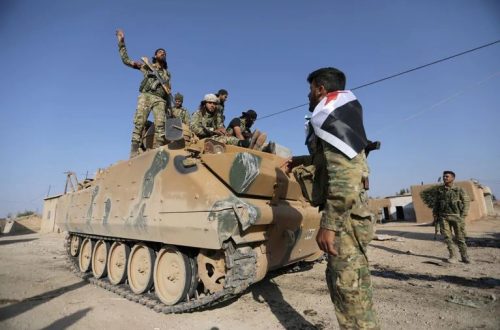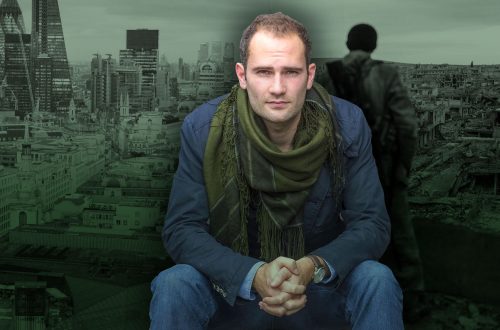Responding to my post Wednesday about the murderous chemical attacks in the Damascus suburbs, Sackcloth and Ashes correctly observed:
Here’s the test now. Ake Sellstrom of the UN’s Chemical Weapons Investigation Commission should request that the sites of the alleged attacks should be added to his mission’s itinerary, so that they can get soil samples, interview witnesses etc.
If this is a put-up job the Assad regime will have no problems complying.
If it’s a genuine attack, they’ll prevaricate and block access.
Indeed. If the Syrian regime had nothing to do with the attacks, they not only would allow the investigators access to the sites; they would insist that they go there immediately.
Now Reuters reports:
The longer chemical weapons inspectors wait in a Damascus luxury hotel for permission to drive up the road to the site of what appears to be the worst poison gas attack in a quarter century, the less likely they will be able to get to the bottom of it.
The poisoning deaths of many hundreds of people took place only three days after a team of U.N. chemical weapons experts arrived in Syria. But their limited mandate means the inspectors have so far been powerless to go to the scene, a short drive from where they are staying.
“We’re being exterminated with poison gas while they drink their coffee and sit inside their hotels,” said Bara Abdelrahman, an activist in one of the Damascus suburbs where rebels say government rockets brought the poison gas that killed hundreds of people before dawn on Wednesday.
The Syrian government denies it was behind the mass killing, the deadliest incident of any kind in Syria’s two-and-a-half year civil war and the worst apparent chemical weapons attack since Saddam Hussein gassed thousands of Iraqi Kurds in 1988.
The United Nations has asked President Bashar al-Assad’s government for access to the scene, and Secretary-General Ban Ki-moon said it should be investigated “without delay”.
Former weapons investigators say every hour matters.
“The longer it takes, the easier it is for anybody who has used it to try to cover up,” said Demetrius Perricos, who headed the U.N.’s team of weapons inspectors in Iraq in the 2000s.
“The more you cover up, the more time it takes afterwards to uncover it. So time is definitely not something that you want to take, you don’t want to do it slowly,” Perricos told Reuters.
If the Syrian regime had nothing to hide, the investigators would not still be sitting on their asses nearly 48 hours after the attacks.
This raises the likelihood that the Assad government was responsible for the attacks from about 90 percent yesterday to somewhat more than 99.9 percent today.
As for why the regime would carry out such a brazen and brutal attack while the investigators were in Syria, Joanna Paraszczuk at EA WorldView writes:
Increasingly under pressure, and facing increased attacks on its positions in Damascus and elsewhere, the Assad regime decided to gamble on a major offensive to regain control of the Damascus suburbs. It gambled that the international community would not respond with intervention, and that the attacks would buy him enough time and weaken the Damascus suburbs to such a degree that Syrian forces could carry out a ferocious and swift offensive across multiple targets.
Wednesday’s attack can also be seen as an escalation of another tactic that Assad has employed against insurgent-held areas — that of “terror bombing“, i.e. the use of a ferocious, highly destructive attacks against civilian populations to create terror and fear, in the hope that this will weaken insurgent strongholds.
…..
Put bluntly, the unprecedented operation on Wednesday was not a sign of President Assad’s strength. It was testament to his desperation. And if that desperate attempt does not succeed….What else is there that Assad and his advisors can do beyond a chemical attack?
Update: A reminder that back in May the French newspaper Le Monde published convincing evidence that the Syrian regime was routinely using chemical weapons. But these latest attacks take it to a whole new level.


